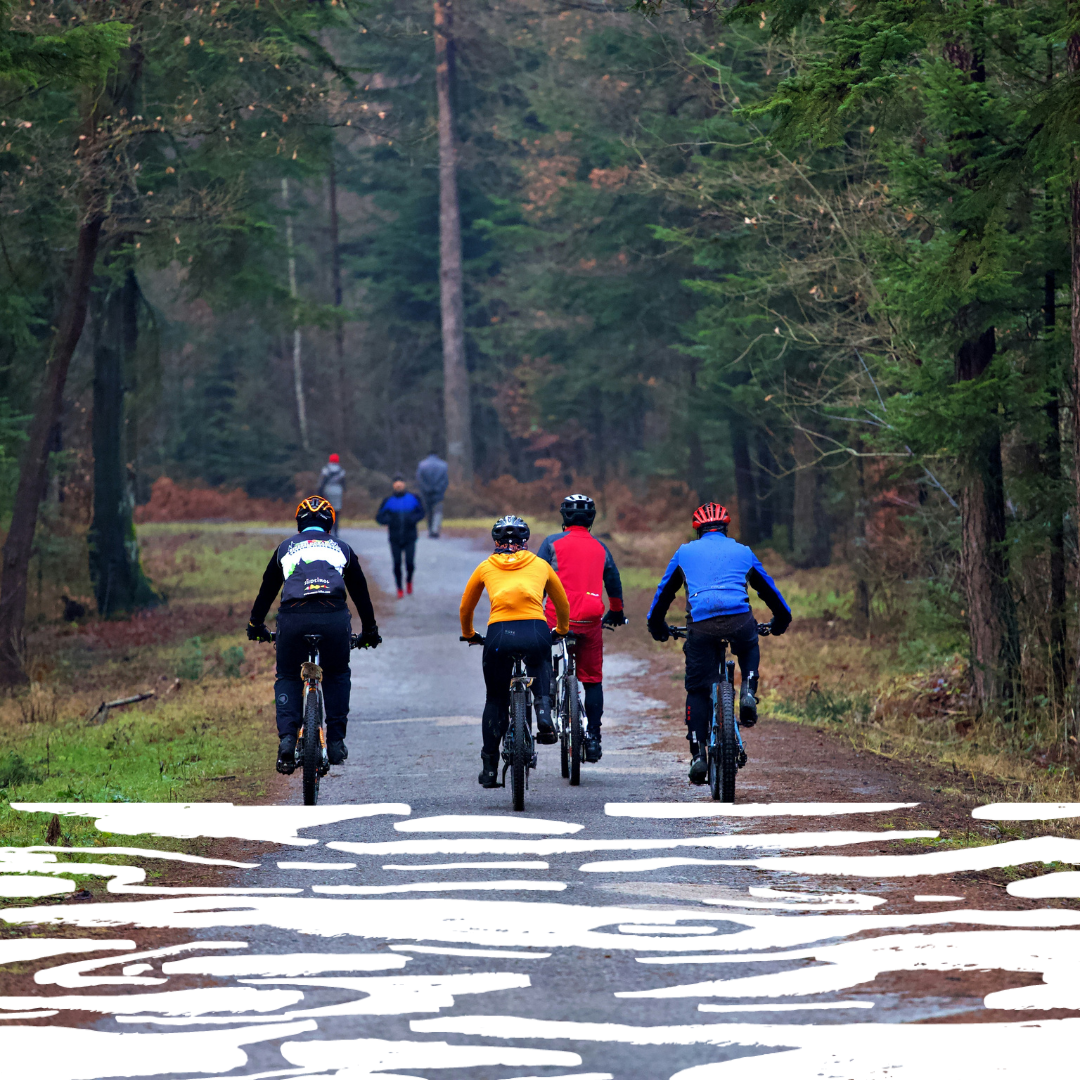Adventure Tips: Right to Roam

Ever wanted to just wander and not worry about whether you were on NPS land or State land or (yikes!) private property? Let me introduce you to an idea: Right to Roam.
In many countries around the world, outdoor enthusiasts have the right to roam, also known as freedom to roam or everyman's right, which allows them to explore the great outdoors without the need for permission from land owners. This concept is founded on the idea that nature should be accessible to all, and that people should have the freedom to explore and enjoy the natural world.
The "right to roam" laws vary in different countries, and not all countries have such laws in place. In some countries, the laws are relatively new and still being developed, while in others they have been in place for centuries. Some of the countries with well-established "right to roam" laws include:
- Sweden: The right to roam in Sweden, also known as "allemansrätten", has been in place since the 16th century. It grants the public the right to walk, cycle, ski, and camp on any land in the country, as long as they do not cause any damage or disturbance.
- Norway: The right to roam in Norway, also known as "allemannsretten", is similar to that of Sweden. It allows the public to roam freely in the countryside, as long as they respect the land and the property of others.
- Finland: The right to roam in Finland, also known as "everyman's right", grants the public the right to access, walk, ski and cycle on any land in the country, including forest and lake areas, regardless of who owns the land.
- Scotland: The Scottish Outdoor Access Code grants the public the right to access most of Scotland's land and water for recreational purposes such as walking, cycling, horse riding, and wild camping.
In countries with "right to roam" laws, it means that you have the freedom to explore the great outdoors and enjoy nature without the need for permission from land owners. You can hike, camp, fish, and engage in other outdoor activities on most lands without the need to ask for permission or pay fees. However, it's still important to respect the land and the rights of others. This means following basic principles of Leave No Trace, not disturbing wildlife and their habitats, not vandalizing or damaging private or public property and respecting the laws of the country.
Planning an outdoor adventure in a country with "right to roam" laws can be a great way to experience the natural beauty of the area and to enjoy the freedom of exploring the great outdoors. Here are some basic tips to help you plan your outdoor adventure:
- Research the area: Before you set out, research the area where you plan to hike, camp, or engage in other outdoor activities. Look for information about the trails, the terrain, the weather, and the level of difficulty of the area. Make sure to check for any areas that are off-limits, such as private property or sensitive ecosystems.
- Get the right gear: Make sure you have the right gear for your outdoor adventure, including proper footwear, clothing, and equipment. Pack enough food, water, and other essentials, and be prepared for the weather.
- Respect the land and the rights of others: Remember that "right to roam" laws grant you the freedom to explore the great outdoors, but also come with the responsibility to respect the land and the rights of others. Follow basic principles of Leave No Trace, such as not littering and not disturbing wildlife and their habitats.
- Know the local laws and regulations: It's important to be aware of local laws and regulations when planning an outdoor adventure in a country with "right to roam" laws. For example, in some countries, there might be restrictions on the time of the year that you can camp or the type of fire you can light. Be sure to check for any specific rules that apply to the area where you plan to hike or camp.
- Be prepared for emergencies: Accidents can happen, even when you're well-prepared. Always carry a basic first-aid kit and a means of communication. Know your location and the route you plan to take, so that you can give accurate information in case of emergency.
- Check the weather forecast: This is crucial for planning a safe and enjoyable outdoor adventure. Being aware of the weather forecast can help you to pack the appropriate gear, and make decisions on the type of route you take.
- Consider hiring a guide: Hiring a local guide can be a great way to learn more about the area and to experience it in a more authentic way. A guide can also provide valuable information about the best trails, local customs, and tips for staying safe.
In countries with "right to roam" laws, there are many trails that go through private land and allow hikers and backpackers to explore areas that might otherwise be off-limits. Here are a few examples of popular trails that go through private land in countries with "right to roam" laws:
- Sweden: The King's Trail (Kungsleden) is a long-distance hiking trail that goes through some of the most beautiful wilderness areas in Sweden. It passes through several private lands and traditional Sami lands but is open to the public.
- Norway: The Rondane National Park is a popular destination for hiking, backpacking, and skiing. The park includes many trails that go through private land, but hikers are welcome to explore.
- Scotland: The West Highland Way is a long-distance hiking trail that goes through some of the most beautiful landscapes in Scotland. The trail passes through private land but hikers are welcome to explore with permission.
- Finland: The Karhunkierros Trail is one of the most popular long-distance hiking trails in Finland. The trail passes through several private lands but hikers are welcome to explore with permission.
It's important to note that while "right to roam" laws allow access to private land, it is still important to ask for permission and to respect the rights of landowners. Make sure to follow any specific rules or guidelines that may apply to the trail or the area you plan to hike. Also, it's good to inform the landowner of your plans and ask for any specific instructions they might have, such as areas that should be avoided or special rules.
When hiking or backpacking through private land, it is also important to be mindful of the environment and to follow the principle of Leave No Trace, making sure not to disturb wildlife, habitats, or cultural sites. Remember that right to roam laws are a privilege, not a right and it's always a good idea to act in a respectful and responsible manner, as a good guest in the land.







